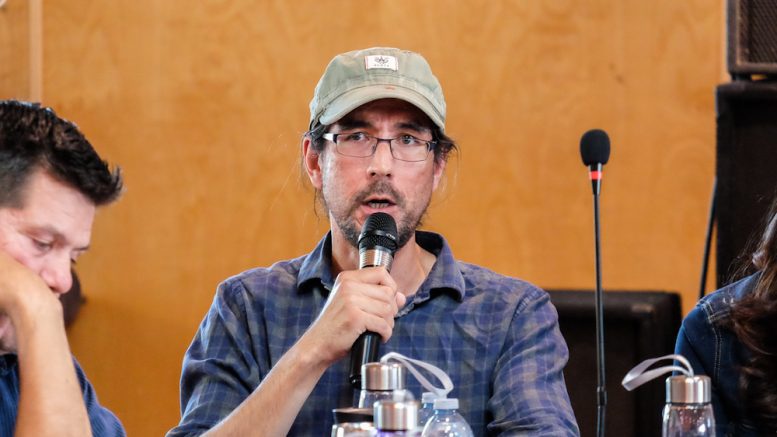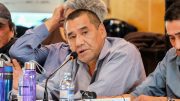Updated August 30, 2019 to reflect the answers of the Government of the Northwest Territories.
When it comes to Fort Good Hope’s ongoing self-government negotiations, there’s still a “large gap” between the community and the Government of the Northwest Territories (GNWT), says Chief Negotiator Daniel T’Seleie.
For now, that means the parties are working on the skeleton of an agreement.
“The approach of the GNWT right now is difficult because it seems like they’re unwilling or unable to move on certain issues so we’re focusing to make progress where we can,” says T’Seleie.
He adds that the federal government doesn’t have much skin in the game post-devolution, hence why the community is mostly butting heads with the territorial government.
Some of the more substantial subjects that are being negotiated include the community boundary and housing.
“Those are the most impactful subject matters in terms of how things will filter down to impact people’s lives in the community,” says T’Seleie. “And we still have large areas of disagreement in some of those subject matters.”
CKLB also asked the Department of Executive and Indigenous Affairs (EIA) for details on the causes of the friction between the parties.
In an email, it said, “The GNWT is not prepared to negotiate self-government agreements through the media… The GNWT continues to participate in good faith negotiations, with Canada and Fort Good Hope to candidly exchange views and explore solutions to the issues raised during negotiations.”
Asked about a timeline to when an agreement may be reached, the department said that the current framework outlines concluding a self-government agreement by next summer.
Checked box
T’Seleie delivered the update during the Sahtú Secretariat Inc.’s annual assembly last week in Fort Good Hope.
Many residents raised concerns of what rights would be given up in the negotiations. In response, T’Seleie said anything that wouldn’t be included in the final self-government agreement could potentially be given up.
In a follow up interview, he explained some possible outcomes:
“That’s one thing that we’ve been discussing at the table where I see disagreement between Good Hope and government… Once a self-government agreement has been reached, in government’s view, that obligation is fulfilled. They check that box and have no further obligation to negotiate…There’s an argument that can be made on the part of government that once those rights are defined, there’s no additional rights. And in a sense, that’s what we see with extinguishment clauses in land claims agreement. You exchange your aboriginal rights and your ability to bring forward claims for aboriginal rights and aboriginal title, you exchange that for the defined rights in that modern treaty agreement.”
That’s why the community isn’t currently looking for a modern treaty.
Another way to mitigate the loss of rights is to negotiate a “most-favoured nation clause,” which essentially says that whenever another Indigenous nation has a certain recognized right in an agreement, another nation can re-open its agreement to negotiate that right. But T’Seleie says there are no real guidelines as to what those clauses look like in practice. He adds that, so far, there hasn’t been much movement on such a clause at the negotiation table.
CKLB asked EIA for its position on having a most-favoured nation clause, but it reiterated that it didn’t want to negotiate “through the media.”
While the more substantive work still needs to be done, T’Seleie says one of the community’s priorities is to get “real certainty” around having its residents’ rights recognized going forward.
Francis was a reporter with CKLB from January 2019 to March 2023. In his time with CKLB, he had the immense pleasure and honour of learning about northern Indigenous cultures.









